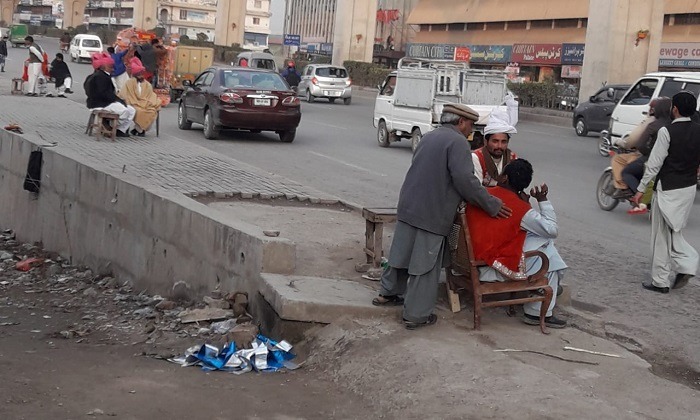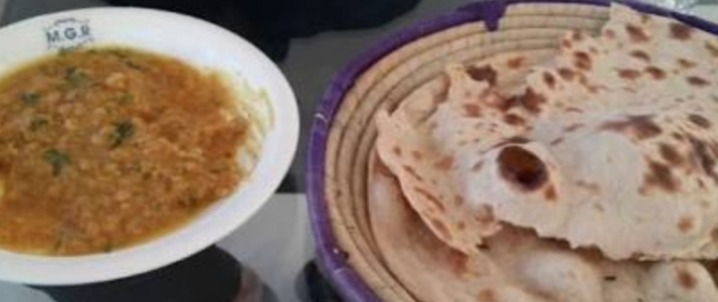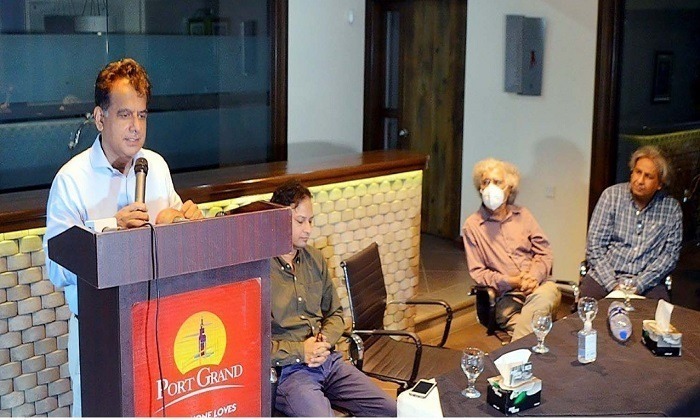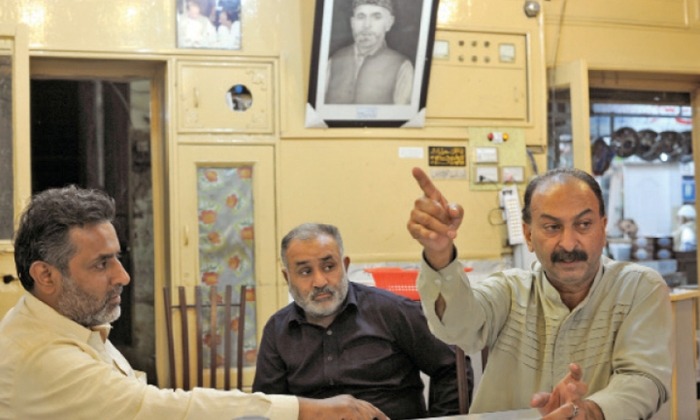[wp_ad_camp_1]
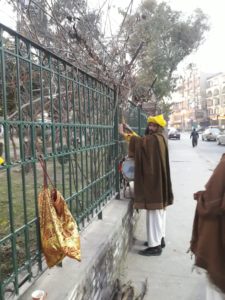
An entertainer at Liaquat Bagh, Murree Road putting his drum along the fence of the park to have some rest after doing hard labour.Beating Dhool (drum) on occasions of celebrations is the family business of Master Sabir. He is all happy as being a performer/entertainer or what the masses call him as Merasi and he is contented with his destiny.
He claims to have performed on hundreds of occasions of celebrations where he was invited along with his team to perform. His six-member Dhool and Luddi Party awaits alongside Murree Road for customers from early morning to late evening irrespective of chilly, hot or stormy weather to earn its livelihood. All the members of his ‘party’ or team are close family members. He is known as ‘Mirasi’ which means his livelihood depends on playing musical instrument.
Being ‘Mirasi’ is not only a profession but also a tradition which date backs to centuries. Every village in the area had these ‘mirasis’ to entertain the villagers on the different occasions of celebration.
The art of beating drums or playing other musical instruments is passed from one generation to other. Sabir also learnt this art from his elders and now he is transferring it to younger members of his family. “Tradition needs to continue,” he states while responding to a query of this writer.
One may observe hundreds of these performers in Rawalpindi mostly alongside Murree Road throughout the year. Almost all of them wear same yellow colour dress and colourful turban. Young lads amongst them learn the art of beating drums and playing other musical instruments when they have free time. Actually alongside the road these persons are music academy in themselves.
Sabir’s elder son Ramazan is the regular drumbeater while another son of him has been assigned to dance on the tune of Luddi.
Another family member plays Shahnai and few other do business of collecting Wail (money showered on blessed ones). Younger members of the family currently assigned to collect ‘Wail’ may also be assigned the job to play some music instrument when they are properly trained.
Yellow turban, yellow shirt, red waistcoat and white Shalwar is the identical dress for all these entertainers. This attire helps them to attract the clients and make their appearance as entertainer visible from a distance.
This sort of dress code actually represents the festival of Basant (spring) in the area but according to these performers it’s their uniform.
Sabir’s family lives in Sargodha and he is living in Rawalpindi as this city has more conducive environment for his business than his native town.
According to him playing ‘Shahnai’ is the most difficult job in the team and any Shahnai player has to abandon playing it after 15 years or so because certainly he would develop health related mostly related with lungs.
“The Shahnai player needs healthy lungs for longer stamina for playing the instrument. In the beginning even playing it for one or two minutes seems a hard labour in a single sequences but after developing stamina and expertise one may enhance this sequences to half an hour with the practice and patience,” Sabir told this scribe.
According to him when the lungs do not allow someone to play anymore Shahnai due to health related issues then he would start working as drumbeater or a Wail collector.
There are people who hire their services for celebrating wedding ceremonies or to perform in functions which are organized to give honour to someone for any achievement. They are also invited to perform when it matter of being blessed with childbirth.
For attending any ceremony they charge 2000 rupees or more for two to three hours performance. Their musical instruments are only available on specific locations in the country and they are really expensive to buy.
The price of ‘Dhol’ may be high as Rs25,000 and as minimum as Rs20,000 while the Shahnai’s price is near around Rs7,000.
During ongoing chilly weather they keep their stock of dry wood near the place where they are stationed and lit it after evening. Constant sips of tea and their little campfire keep them warm till midnight in the chilled weather of January or February. Generally they remain on the road late night as according to them clients may come anytime from sunrise to late night and they can’t afford to miss any chance of performing for any occasion. Ends
